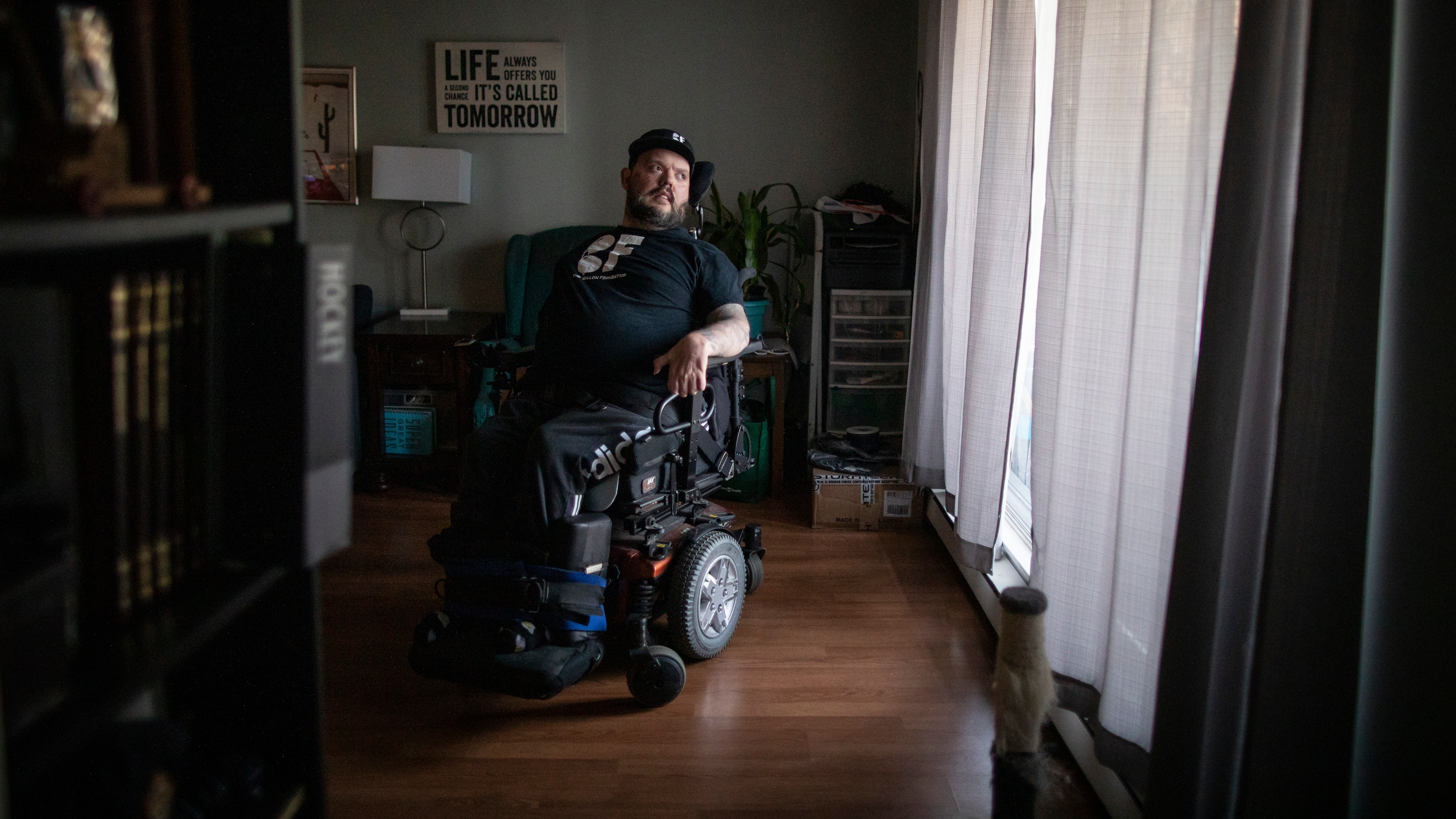
15 Feb WestJet CEO apologizes for accessibility failures
WestJet chief executive officer Alexis von Hoensbroech apologized Thursday for incidents where the airline failed to accommodate people living with disabilities, saying he hopes to improve travel accessibility.
“To our guests who didn’t have a good travel experience with us, we are sincerely sorry, and we are committed in doing better,” von Hoensbroech said during a House of Commons transport committee hearing on accessible transportation.
More than 99.9 per cent of the carrier’s 260,000-plus customers who required support last year — roughly 700 each day, the vast majority of whom used wheelchairs or mobility aids — had a good experience, he said.
“Every case that goes wrong is one too many,” the CEO said.
Several incidents have surfaced at Canadian airlines over the past year.
Ryan Lachance and his caregiver, Emma Proulx, say Air Canada crew need better training to keep people with disabilities safe.
In August, a B.C. man with spastic cerebral palsy was forced to drag himself off of an Air Canada plane in Las Vegas. Last fall, former Paralympian Sarah Morris-Probert hauled herself up WestJet aircraft stairs rather than being able to board using her wheelchair.
“Everyone’s always very sorry and very committed to doing better whenever these things happen, but these high-profile incidents continue to plague Canadian airlines,” Conservative MP Mark Strahl told von Hoensbroech.
“Thoughts and prayers are no longer acceptable.”
Von Hoensbroech highlighted steps WestJet is taking to boost accessibility. These include a process to confirm to customers that mobility aids were loaded into the cargo hold and procedures to properly store those devices on board across its whole network. Both measures are set for rollout “very soon,” he said.
Advocates insist tougher rules and enforcement are needed to reduce accessibility barriers.
Air Canada has apologized to a B.C. man after staff told him he would need to get to the front of the plane without any assistance. The airline has also admitted it violated Canadian disability legislation. Rodney Hodgins hopes the situation will lead to systemic change.
“As a blind passenger, I dread entering Canadian airspace, because I never know how good or bad will be my treatment,” said David Lepofsky, a lawyer who chairs the Accessibility for Ontarians with Disabilities Act Alliance, in a Wednesday news release that called for stricter regulations and a crackdown by regulators.
“Month after month, the media has reported on inexcusable and recurring incidents where an airline loses or destroys a passenger’s wheelchair, leaves a passenger with disabilities to crawl off an airplane, or strands a passenger with disabilities for hours in a Canadian airport without needed assistance.”
‘Inadequate enforcement and inadequate legislation’
Existing regulations codify important principles but fail to clearly spell out financial consequences for breaches, said Gabor Lukacs, president of the Air Passenger Rights advocacy group.
“The culprit is the perennial problem of inadequate enforcement and inadequate legislation,” he told the committee.
Penalties against large airlines over disabilities violations have occasionally topped $100,000. “However, when the media is not paying attention the fines are insignificant,” Lukacs said.
Last week, the Canadian Transportation Agency penalized Air Transat to the tune of $11,000 after it failed to quickly provide a suitable replacement for a passenger’s mobility aid that had been lost on arrival in Venice. Airline owner Transat A.T. Inc. took in $3 billion in revenue last year.
The agency’s enforcement team tracks complaints to scan for a pattern of contraventions, and looks to impose fines when it sees a problem as “systemic,” said Tom Oommen, the agency’s director general of analysis and outreach, in an interview last month
Lukacs also called for a government mandate to track and post statistics on disability-related complaints and mishandled mobility aids, as the U.S. Department of Transportation does.


